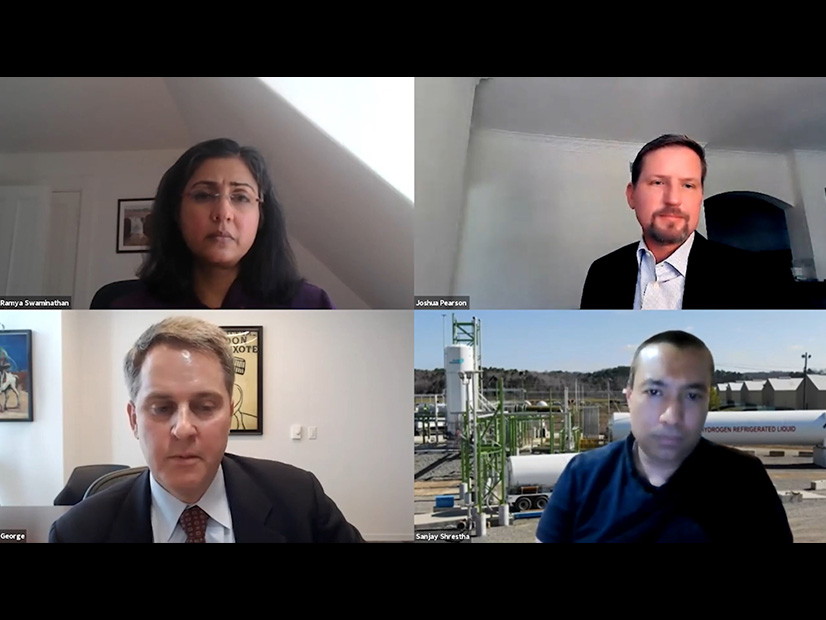Decarbonization experts called for an all-hands-on-deck approach to a net-zero electricity sector, telling the Energy Bar Association last week that the industry has little choice but to decarbonize — and fast.
Thompson and Knight partner George Humphrey said during a May 11 panel discussion before the EBA that 2020 represented a “sea change in the way the world is looking at climate change and renewables.”
“For my entire career, there’s always been talk that we’re going to go to renewables and that climate change is real,” he said. “Last year, we really saw that.”
Humphrey said several automakers made electric vehicle pledges while oil and gas companies diverted huge amounts of capital to a green economy. “I don’t know what it was last year — the pandemic, believing the science … It’s been truly remarkable.”
Humphrey said oil usage may be peaking, but the demand for natural gas isn’t slowing. That is partly because of a belief that gas-fired generation is needed to shore up an intermittent energy supply, he said.
Joshua Pearson, legal vice president of EDF Renewables North America, said climate beliefs are shifting because many people are living through brutal natural disasters.
“I think those personalized experiences are having a real impact in the changing attitudes,” he said. “You have a much different perspective on whether or not the warming of the planet is something that we should pay attention to if you’ve lived through a wildfire or lived through a disastrous hurricane or the Texas freeze.”
Pearson said 2035 — President Biden’s target for achieving 100% carbon-free electricity — is approaching faster than many think.
“This energy transition, maybe five or 10 years ago, there was a question whether it was possible. I think the consensus now is it’s happening, and it’s going to continue,” he said. “The real question is how quickly and what can we do to accelerate it. [There’s] not a lot of time to accomplish this.”
Pearson predicted a “rapid deployment” of storage assets, saying that storage is on the same cost curve and growth trajectory that solar panels were a decade ago.
He also predicted more transmission, offshore wind, geothermal energy and upgrades to existing run-of-river dams.
“The electrical transmission grid has been in need of a massive upgrade for quite some time,” Pearson said. “There is a lot of hydropower generation that has not been upgraded in 80 or 90 years.”
Plug Power Chief Strategy Officer Sanjay Shrestha said some natural gas pipelines will be retrofitted to transport green hydrogen.
“How do we get to 2035? We need all of these solutions,” Malta Inc. CEO Ramya Swaminathan said. “It is time to deploy demand-side and supply-side solutions.”
Swaminathan said the industry has entered an era of immense renewable generation expansion, fossil plant retirements, “massive” electrification, and worsening reliability from grid architecture that wasn’t designed to handle so many intermittent resources, some of which are situated far from load.
“Pricing on renewables makes this an economic reality that is inexorable,” she said. “What you’re seeing is the economic reality of really, really cheap generation kind of driving the landscape.”
Swaminathan also said this confluence requires developing long-duration storage technology and meaningful compensation for it. She said storage is not currently compensated for the ancillary services it provides customers who are not accustomed to paying for reliability services.
She said new policies should contain financial incentives for cutting-edge technologies, “anything that helps folks putting out those new technologies in dealing with that premium that is paid for first unit costs is going to be very helpful in catalyzing innovation.”
It’s critical that some new technologies become bankable and not hampered by current regulations, Swaminathan said.
“When you deploy … first-of-its-kind technologies, there is essentially a premium that is paid on the first unit relative to the nth unit,” she said.





